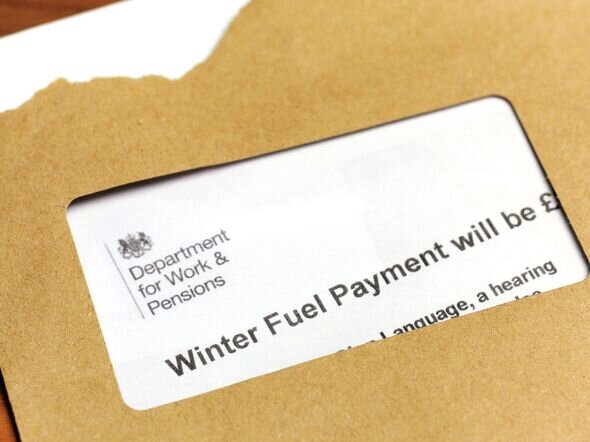The UK tax authority, HM Revenue and Customs (HMRC), is stepping up its fight against tax avoidance among self-employed workers. In a bid to close the widening tax gap, HMRC is focusing its attention on individuals who use aggressive tax schemes to artificially reduce their tax bills.
These avoidance tactics often involve routing income through disguised remuneration schemes or offshoring profits to evade tax liabilities. As the government intensifies its compliance efforts, self-employed professionals are being urged to review their tax arrangements and ensure they are on the right side of the law.
HMRC's crackdown comes as part of a broader initiative to secure billions in unpaid tax and maintain the integrity of the UK’s tax system. Officials warn that those caught in avoidance schemes, especially ones promoted as 'legal loopholes', could face hefty penalties, backdated tax bills, and even prosecution.
The renewed scrutiny reflects concerns about the increasing use of complex arrangements that distort income reporting, often marketed to freelancers, contractors, and consultants. The message is clear: compliance is not optional.

HMRC’s Renewed Compliance Drive
The latest HMRC campaign underscores a shift in strategy, moving from general tax compliance promotion to more targeted enforcement actions. This includes data-driven investigations, closer monitoring of returns, and proactive outreach to individuals identified as high-risk.
According to officials, many of the schemes under investigation are packaged by third-party promoters who claim their services help taxpayers "keep more of what they earn." HMRC’s Director of Counter Avoidance, Mary Aiston, reinforced this stance, stating: "We will always challenge contrived arrangements that try to bend the rules and push the boundaries of what’s legally acceptable."
These schemes often appear attractive but can result in serious financial consequences for participants. HMRC is particularly wary of models where earnings are disguised as loans or offshore payments to reduce National Insurance or income tax liabilities.
Disguised Remuneration in the Spotlight
A key focus of HMRC’s campaign is disguised remuneration, where taxpayers are paid via loans or complex structures instead of salaries. While promoters claim these arrangements are tax-efficient and legal, HMRC argues they misrepresent the true nature of the income and amount to avoidance.
Disguised remuneration has been on HMRC's radar for years, particularly following the 2019 Loan Charge, which sought to recoup taxes avoided through such schemes dating back two decades. The ongoing crackdown signals the department’s intention to maintain pressure and prevent new schemes from emerging under rebranded guises.
Self-employed individuals involved in these setups are being encouraged to come forward voluntarily, with HMRC offering more favourable settlement terms to those who do so before formal investigations begin.
Warning to the Self-Employed Sector
Freelancers, sole traders, and gig economy workers have increasingly become targets for avoidance scheme promoters. HMRC is urging these individuals to be cautious when presented with too-good-to-be-true arrangements. Many of these schemes claim to offer 80–90% take-home pay with minimal deductions, which HMRC deems unrealistic and legally risky.
The tax authority has launched a public awareness campaign, featuring updated guidance and resources for spotting avoidance schemes. A key recommendation is for individuals to seek advice from qualified tax professionals and steer clear of promoters lacking FCA regulation or HMRC registration.

Collaborating with Industry and Regulators
To clamp down on promoters, HMRC is working closely with other regulatory bodies, including the Financial Conduct Authority (FCA) and Advertising Standards Authority (ASA).
Joint initiatives aim to disrupt the marketing of avoidance schemes and enforce stricter compliance standards for those operating in the tax planning space. The crackdown is also supported by legislative reforms giving HMRC greater power to penalise scheme promoters and recover unpaid tax. These changes reflect a growing political consensus around the need for a fairer and more transparent tax system that doesn’t reward avoidance.
Increased Penalties and Legal Risks
HMRC has issued a stark warning: taxpayers involved in avoidance schemes may be liable not only for backdated tax but also for interest, penalties, and reputational damage. In severe cases, criminal charges could follow. Under the General Anti-Abuse Rule (GAAR), HMRC can take swift legal action against any arrangement deemed to be abusive.
Those who suspect they are involved in a scheme are advised to seek independent advice immediately and disclose their arrangements via the Contractual Disclosure Facility or the Digital Disclosure Service. Voluntary disclosure may result in reduced penalties and faster resolution.

Fun Fact
Did you know that some tax avoidance schemes have been marketed under names like “99% Take-Home Pay” or “Loan Bonus Plans”?
While these might sound appealing, they’ve often led to disastrous outcomes for users, including six-figure tax bills and long legal battles. HMRC now maintains a list of named tax avoidance schemes and promoters, helping taxpayers steer clear of risky deals.
Conclusion
As HMRC ramps up its enforcement campaign, the message to the self-employed is clear: stay compliant or risk serious consequences. With enhanced powers, deeper data analytics, and multi-agency cooperation, HMRC is better equipped than ever to identify and act on tax avoidance. The crackdown isn’t just about recouping lost revenue, it’s about creating a tax culture rooted in fairness and integrity.
For self-employed individuals, this is the time to review your tax affairs, consult with reputable advisers, and avoid anything that promises shortcuts. Aggressive avoidance is under the spotlight, and ignorance is no longer a viable defence. Proactivity, transparency, and compliance are the best tools to stay safe and successful in today’s tax landscape.
Frequently Asked Questions
What is a tax avoidance scheme?
A tax avoidance scheme is an arrangement that seeks to minimise tax liability using methods that, while not illegal, are often against the spirit of the law. HMRC can challenge these schemes and impose penalties.
What is disguised remuneration?
Disguised remuneration involves paying income through loans or offshore trusts instead of wages, with the aim of avoiding tax. HMRC considers this avoidance and has taken action through the Loan Charge.
What should I do if I think I’m in a scheme?
Seek independent advice immediately. Use HMRC’s Digital Disclosure Service or Contractual Disclosure Facility to report your involvement voluntarily and reduce penalties.
Are all tax planning services avoidance schemes?
No. Many legitimate tax advisers help reduce tax liability through legal means. Avoid any service promising unusually high take-home pay or secrecy.
Will HMRC prosecute tax avoiders?
Yes, in severe cases. While most avoidance cases are resolved through civil penalties, deliberate or repeated evasion can result in criminal charges.











